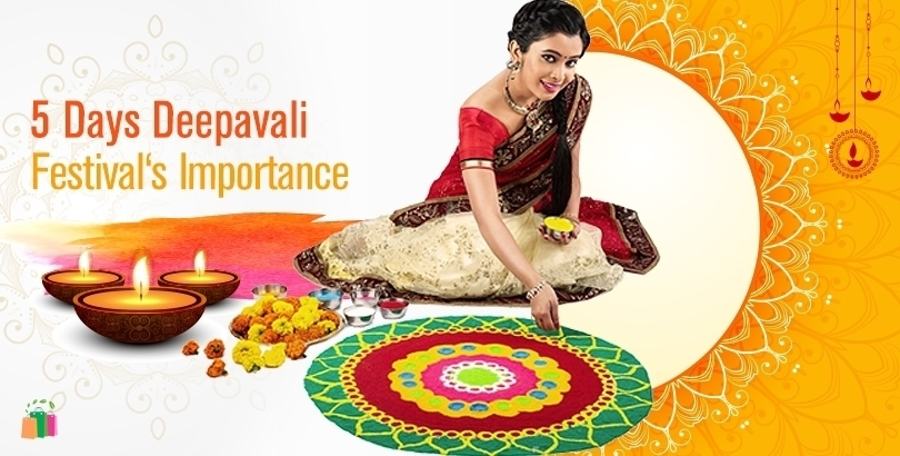
In India, the land of copious Gods and high-spirited religions, what is valued the most since the very foundation of this society is the proximity with one’s family and worshiping is not just limited to the predefined Gods but it goes to the extent of praising all the earthly and celestial bodies, be it trees or rivers or mountains or the moon or the sun or even the planets. So together, when A God or his gift is being worshiped along with the family on a pre-set day that gives you a proper Indian festival.
The essence of a festival or any celebration is to be with one’s family and feel privileged for all that one has. And when it comes to festivals, there is always one coming up at any given point of time during the year. One such festival is Diwali. It is not just one-day festival, it goes on for 5 days. The date varies according to the Hindu calendar but tentatively it falls between mid-Octobers to mid-November. Each of the 5 days has an interesting history and a very special ritual behind it. Now, amidst lavishly lightened up and decorated houses and sounds of distant firecrackers bursting, let’s get into the significance of those 5 days.
1. Dhanteras
Now, as we know the Hindu calendar follows the phases of the moon, so accordingly there are 2 phases of 15 days in a month of the Hindu calendar and the Festival of Diwali starts on the 13th day of the last phase of the last month of the Hindu calendar, the day is called “Dhanteras” which literally means wealth “Dhan” and thirteen “teras”. This day is dedicated to wealth. As the name suggests, the wealth is been worshiped on this day. The Goddess of wealth is considered Goddess Laxmi. The Goddess is been prayed to keep the prosperity of the house intact. On this day apart for worshiping the wealth in the house, there is a tradition of cleaning the house and purifying it by lighting up lamps and especially lighting up a lamp in front of the plant of Tulsi (Basil) in one’s house. The general conception is to buy Gold and/or any other precious things as this day is considered holy in terms of wealth so this day is considered a sort of lucky.
2. Chhoti Diwali
After that, there comes “Choti Diwali” which is the day prior to Diwali in some parts it is known as “Kalichaudas” but in most of the Indian states, it is termed as “Choti Diwali” or “Narak-chaturdasi” which is the 14th day of the lunar calendar. Here the people across the country make Rangolis, which are beautiful floor art done by colourful powders and the lamps are lightened up, it is mainly celebrated in states of Gujarat. This day is dedicated to Lord Krishna who rescWWWWued the kidnaped ‘Gopis’ from the ferocious demon ‘Narakasur’.
3. Diwali
Then comes the day all are waiting for, Diwali. This is the last day of the month of the Hindu calendar. Here, there is a celebration done by bursting crackers and wearing new clothes and visiting relatives. The houses are decorated marvelously and ingeniously. If one does have the chance to view India on this day from outer-space, it certainly will be a treat to the eyes. Here Sweets are been distributed and mantras are been chanted for peace and prosperity. There is also a ritual of performing “Chopda Pujan” followed by businessmen. Here the account books. Here, businessmen consider it pious to worship their books of account and hope that it will prosper over the period of time.
4. Govardhan Puja
After this, comes the First day of the first phase of the first month. This is the New Year according to the Hindu calendar in most parts of the country. This day is also dedicated to Lord Krishna, as he saved the villagers of ‘Gokul’ by lifting up the ‘Govardhan’ mountain. This day is also celebrated as ‘Govardhan puja’.
5. Bhai Duj
Then the last day, the end of this festive season is a celebration of the pious bond between brother and sister. This day is associated with the emotional tale of brother-sister love between Yama and Yami. Yamraj himself blessed the siblings and declared that every brother who greets his sister on this day will have a long life. On this day every brother and sister exchange sweets and sisters apply ‘tika’ on the forehead of their brothers.











































.gif)